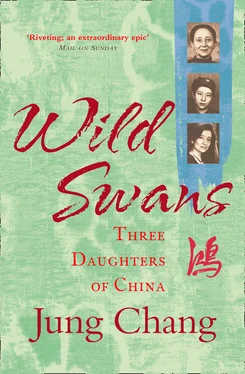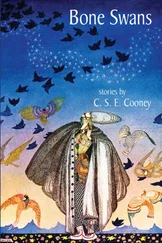One of the top commanders who had been caught had his daughter with him; she was in an advanced stage of pregnancy. He asked the Communist commanding officer if he could stay in Jinzhou with her. The Communist officer said it was not convenient for a father to help his daughter deliver a baby, and that he would send a ‘woman comrade’ to help her. The Kuomintang officer thought he was only saying this to get him to move on. Later on he learned that his daughter had been very well treated, and the ‘woman comrade’ turned out to be the wife of the Communist officer. Policy toward prisoners was an intricate combination of political calculation and humanitarian consideration, and this was one of the crucial factors in the Communists’ victory. Their goal was not just to crush the opposing army but, if possible, to bring about its disintegration. The Kuomintang was defeated as much by demoralization as by firepower.
The first priority after the battle was cleaning up, most of which was done by Communist soldiers. The locals were also keen to help, as they wanted to get rid of the bodies and the debris around their homes as quickly as possible. For days, long convoys of carts loaded with corpses and lines of people carrying baskets on their shoulders could be seen wending their way out of the city. As it became possible to move around again, my mother found that many people she knew had been killed; some from direct hits, others buried under rubble when their houses had collapsed.
The morning after the siege ended the Communists put up notices asking the townspeople to resume normal life as quickly as possible. Dr Xia hung out his gaily decorated shingle to show that his medicine shop was open—and was later told by the Communist administration that he was the first doctor in the city to do so. Most shops reopened on 20 October even though the streets were not yet cleared of bodies. Two days later, schools reopened and offices began working normal hours.
The most immediate problem was food. The new government urged the peasants to come and sell food in the city and encouraged them to do so by setting prices at twice what they were in the countryside. The price of sorghum fell rapidly, from 100 million Kuomintang dollars for a pound to 2,200 dollars. An ordinary worker could soon buy four pounds of sorghum with what he could earn in a day. Fear of starvation abated. The Communists issued relief grain, salt, and coal to the destitute. The Kuomintang had never done anything like this, and people were hugely impressed.
Another thing that captured the goodwill of the locals was the discipline of the Communist soldiers. Not only was there no looting or rape, but many went out of their way to demonstrate exemplary behaviour. This was in sharp contrast with the Kuomintang troops.
The city remained in a state of high alert. American planes flew over threateningly. On 23 October sizable Kuomintang forces tried unsuccessfully to retake Jinzhou with a pincer movement from Huludao and the northeast. With the loss of Jinzhou, the huge armies around Mukden and Changchun quickly collapsed or surrendered, and by 2 November the whole of Manchuria was in Communist hands.
The Communists proved extremely efficient at restoring order and getting the economy going again. Banks in Jinzhou reopened on 3 December, and the electricity supply resumed the next day. On 29 December a notice went up announcing a new street administration system, with residents’ committees in place of the old neighbourhood committees. These were to be a key institution in the Communist system of administration and control. The next day running water resumed and on the 31st the railway reopened.
The Communists even managed to put an end to inflation, setting a favourable exchange rate for converting the worthless Kuomintang money into Communist ‘Great Wall’ currency.
From the moment the Communist forces arrived, my mother had been longing to throw herself into working for the revolution. She felt herself to be very much a part of the Communist cause. After some days of waiting impatiently, she was approached by a Party representative who gave her an appointment to see the man in charge of youth work in Jinzhou, a Comrade Wang Yu.
Конец ознакомительного фрагмента.
Текст предоставлен ООО «ЛитРес».
Прочитайте эту книгу целиком, на ЛитРес.
Безопасно оплатить книгу можно банковской картой Visa, MasterCard, Maestro, со счета мобильного телефона, с платежного терминала, в салоне МТС или Связной, через PayPal, WebMoney, Яндекс.Деньги, QIWI Кошелек, бонусными картами или другим удобным Вам способом.












